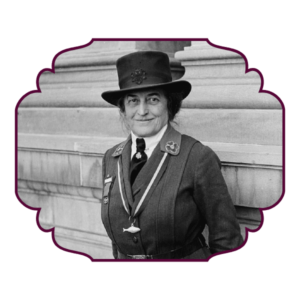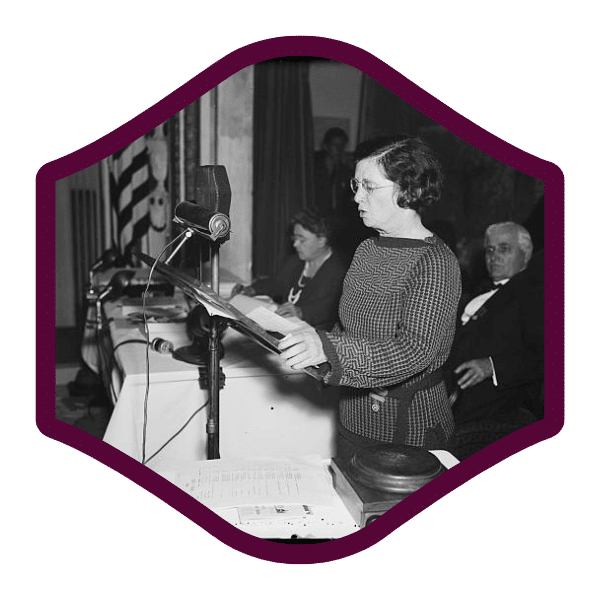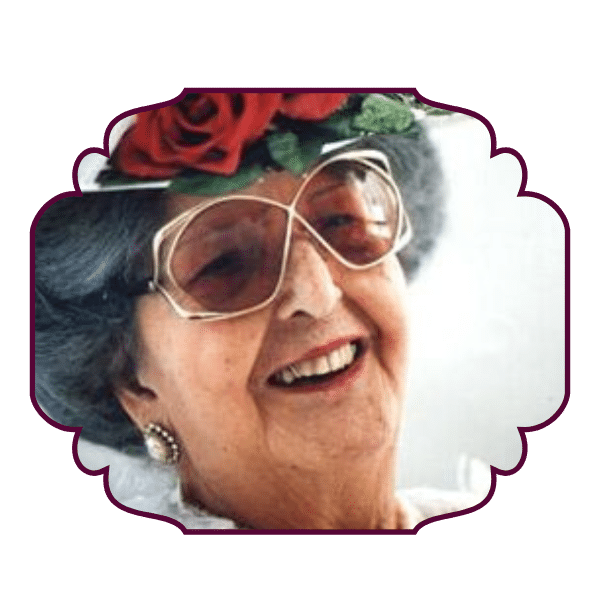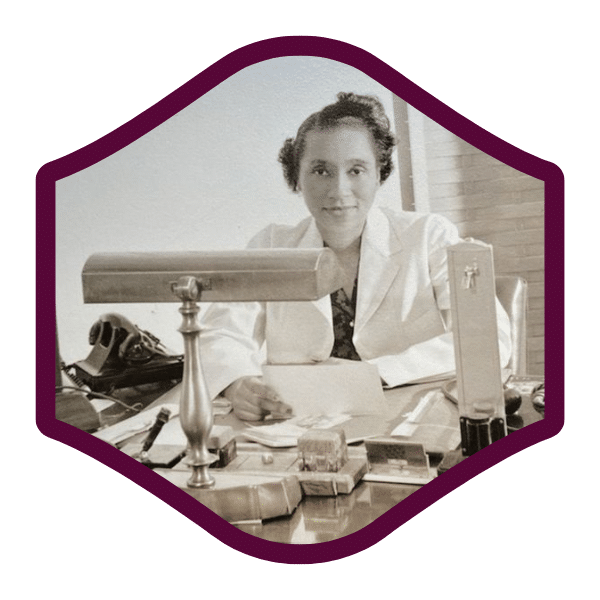Read on to learn about fighters for gender equality in outdoor education, labor, suffrage, health care, and politics.
August 26 is Women’s Equality Day in the U.S. It commemorates the day the U.S. Congress adopted the 19th Amendment, also known as the ‘Susan B. Anthony Amendment,’ which granted women the right to vote on August 26, 1920. Although women have made great strides in the century following, we are still far from equal – especially when getting recognition for our vast achievements.
To help raise awareness about just a few women who have made an impact, the NWHN is uplifting four champions of gender equality who don’t get enough credit. Read on to learn about fighters for gender equality in outdoor education, labor, suffrage, health care, and politics.

Juliette Gordon Low
(1860 – 1927) Adventurer and Founder of the Girl Scouts
Juliette founded Girl Scouts of the USA in 1912 – when the conventional wisdom on women was that they were delicate creatures who should stay in the home, and when even their clothes – from corsets to impractical shoes, limited movement.
Born on October 31, 1860, in Savannah, Georgia, Juliette’s life journey was as remarkable as unconventional. A spirited adventurer with a thirst for exploration and a desire to experience different cultures, she traveled widely, visiting places like Egypt, India, North Africa, and England.
It was on one of these visits to England that Juliette met the founder of the Boy Scouts, Sir Robert Baden-Powell. Baden-Powell’s ideas on youth education, outdoor activities, and character development deeply influenced Juliette, and she saw the potential for similarly empowering young girls. Their meeting was a pivotal moment that inspired her to establish a similar organization for girls, leading to the ultimate founding of the Girl Scouts.
Today, the Girl Scouts is still carrying out their mission to “build girls of courage, confidence, and character, who make the world a better place,” all while teaching girls outdoor skills that were, in Juliette’s time, primarily taught to boys.
Learn More About Juliette Gordon Low
 Rose Schneiderman
Rose Schneiderman
(1882-1972): Labor Leader and Suffragette
In the bustling streets of early 20th-century New York City, amidst the clatter of dangerous machinery and the shouts of factory workers, one woman’s voice soared above the rest – Rose Schneiderman. A Polish-born woman with an unyielding passion for justice and equality, Schneiderman blazed a trail as a labor leader and women’s rights advocate, leaving an indelible mark on American history.
Born in 1882 to Jewish immigrants, she faced adversity early on, but her tenacity knew no bounds. She toiled for years in cap and dress factories, experiencing first-hand the harsh conditions and long hours typical of many sweatshops and factories during that time. It was her personal experience as a worker that fueled her passion for labor rights and motivated her to fight for better conditions for herself and her fellow workers.
Her eloquence and fiery speeches stirred the hearts of those oppressed by harsh working conditions, leading to strikes and improved labor laws. Her tireless efforts culminated in the founding of the Women’s Trade Union League, an organization dedicated to empowering working women. Schneiderman was also an active suffragist and tirelessly campaigned for the right to vote in her lifetime.
Beyond her public persona, Schneiderman was known for her love of literature and the arts. Often seen at literary salons and progressive gatherings, her eclectic circle of friends included prominent intellectuals, anarchists, and social reformers, each inspired by her unwavering spirit.
Learn More About Rose Schneiderman
 Felisa Rincón de Gautier
Felisa Rincón de Gautier
(1897-1994): Public Servant and the First Woman Mayor of San Juan, Puerto Rico
Felisa Rincón de Gautier was a Puerto Rican political leader and women’s rights advocate who made significant contributions to the Latino community in the United States. Hailing from Puerto Rico, Felisa Rincón de Gautier, AKA “Doña Fela,” emerged in the 1940s as a rising star in the male-dominated political arena, becoming the first woman to be elected Mayor of San Juan. Her remarkable victory marked a turning point for women’s political representation and equality in the Americas.
As mayor, Doña Fela distributed food and shoes to poor children, built new elder care facilities, and offered legal help to low-income residents. Dedicated to improving public health equity, Doña Fela spearheaded the renovation of the San Juan Municipal Hospital complex, making it the first hospital on the island to receive complete accreditation from the American Hospital Association and paving the way for the founding of its School of Medicine in 1950. In 1949, she established a series of “Maternal Schools,” preschool/childcare centers that were the model for what is known today as the federal Head Start program.
Learn More About Doña Fela
 Dr. Helen Octavia Dickens
Dr. Helen Octavia Dickens
(1897-1994): (1909-2001): The First Black Woman Surgeon and OBGYN
Dr. Dickens was the first Black woman admitted to the American College of Surgeons. Born in 1909 in Dayton, Ohio, to a former slave, she often elected to sit in the front of her medical school classes so that she could more easily ignore the racist comments made by her classmates. Dr. Dickens’ calling to medicine was fueled by a profound desire to address the stark health disparities endured by marginalized communities – disparities she had witnessed personally and professionally during her clinical experiences.
During her illustrious career, Dr. Dickens pioneered groundbreaking research in gynecological cancers, laying the groundwork for the suite of innovative treatment approaches used today. Beyond her surgical skills, Dr. Dickens’ warm personality and empathetic demeanor left a mark on her patients. Hoping to educate young women to empower themselves, she led extensive research into teen pregnancy and sexual health issues for health equity and equality. She used the results of her wide-ranging surveys to advise schools, parents, and health professionals on intervention strategies to lower the incidence of teen pregnancy and sexually transmitted diseases.
Dr. Helen Octavia Dickens was also a compassionate mentor. As a respected professor at various prestigious medical institutions, she nurtured the aspirations of countless aspiring physicians, inspiring future generations of Black women in medicine.
Learn More About Dr. Dickens




 Rose Schneiderman
Rose Schneiderman Felisa Rincón de Gautier
Felisa Rincón de Gautier Dr. Helen Octavia Dickens
Dr. Helen Octavia Dickens





